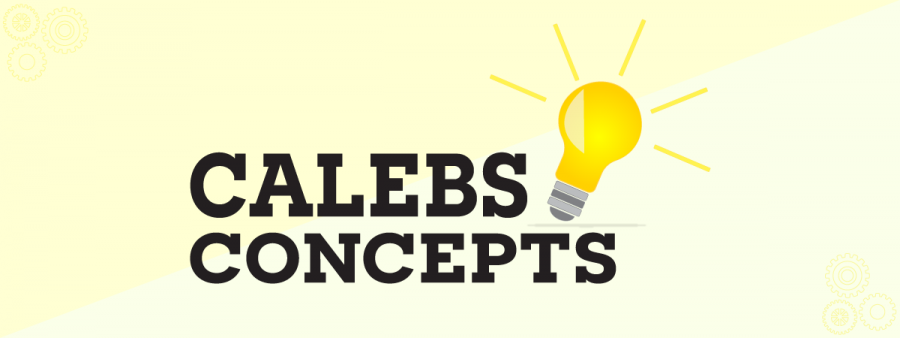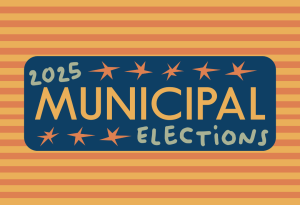The Tyranny of the Majority: Direct Democracy
February 20, 2020
Direct democracy is impractical and unethical because it empowers mob rule at the expense of order and security. Mob rule eliminates Locke’s contract between citizens and government, where freedom is traded for safety.
Direct democracy’s proponents claim it empowers citizens to vote on policy issues if elected officials fail their responsibilities. Yet, proponents assume that a population’s majority will know which policy changes result in positive outcomes. Recent history shows that direct democracy doesn’t always result in pleasant outcomes.
In 2008, California democratically passed Proposition 8, banning gay marriage, which remained illegal until the U.S. Supreme Court deemed Prop. 8 unconstitutional in 2013.
This case highlights the structural problem with democracy when it comes to legislating a minority population’s rights. The majority should never determine the rights and privileges of others because the proportionate majority is pursuing their needs while neglecting the needs of others.
Direct democracy wrongfully assumes everyone’s opinion is of equal merit. This concept originated from the sophist philosophy in ancient Greece. Sophist philosopher Protagoras remarked, “Man is the measure of all things,” meaning individuals construct truth. If individual perception is truth, then the best policy is one accounting for the shared majority of truth.
This concept is laughable because there are external forces that shape individual perception. These struggles shape individual realities, and individuals form groups from their external realities. Since each group is unique, then different groups have different realities.
If society is separated among groups, then a just society gives each group a platform to meet their needs. This is not an option within a direct democracy because larger groups determine policy outcomes. Therefore, democracy promotes the exclusion of some to meet the needs of others.
Since North Carolina’s Democratic primaries are around the corner, voters can choose from many candidates. Some candidates make promises that may sound great, yet won’t keep their promises once elected. Thus, informed voters must research each candidate’s policies and choose who they think will honor their word.
Direct democracy rightfully terrified our Founding Fathers. However, democratic elements when properly incorporated are necessary to promote a just society. America is a representative democracy aiming to give everyone a voice. However, its execution requires a well informed populace. Thus, America’s future rests in our hands.














Robert Walton • Feb 21, 2020 at 11:51 am
This is a rehash of nearly ancient propaganda from the robber barons and its complete nonsense. The entire concept of “political representation” is obsolete. Direct democracy supported by modern tech is human destiny.
GS Pinto • Feb 21, 2020 at 10:00 am
What do you think we have today MOB RULE by a bunch of corrupt politicians on both sides of the isle. Our forefathers were afraid of Majority rule during the period between the Articles of Confederation and the writing of our Constitution. At this time they were debating what type of government we would have. The choices were a republic or a Direct Democracy. It is painfully they choose WRONG.
There was no way to determine what would happen until such time historical information could be analyzed. The difference is with a representative government the people were slowly excluded from the decision making process allowing corrupt politicians the ability to control legislation. Today the result is regulations that deny WE THE PEOPLE access to the very tools our forefathers left us to insure we could defeat the attempt to take control of the government. These tools are the very elements of Direct Democracy, Initiatives , Referendums and Recall.
When they choose a republic they left the use of Initiative Referendum and Recall to be codified by the STATE GOVERNMENT. half choose to not allow IR&R, 26 states have some form of IR&R however the state laws seriously infringe the use by the people while allowing the legislature free reign.
It is painfully obvious that denying WE THE PEOPLE our say in the business of OUR government is EXACTLY what allowed corruption to run like a cancer throughout OUR government. Direct Democracy brings with it TRANSPARENCE many eyes on what is happening. Corruption cannot survive in the light it needs closed doors and skiffs to hide. TRANSPARENCY brings with it ACCOUNTABILITY, a name on the blame line.
Lastly your argument that Direct Democracy is nothing more than “MOB RULE” is obsolete, today’s technology reaches into every crack and crevice on the planet. The argument is nothing more than FEAR MONGERING used by ALL politicians to maintain there strangle hold on this country’s money. The reason politicians attempt to regulate IR&R out of your reach is because they FEAR an educated and informed public.
Representative government has become a failure. It is the very reason the rich get richer and the poor pay for it! It is time for a change that keep the citizens informed and active in OUR country’s decisions. As long as representative government exists the illusion of ANY politician combating or ending corruption exists.
To the author I say bring your views into the 21st century!
Evan Ravitz • Feb 20, 2020 at 9:05 pm
Direct democracy has occasionally and temporarily impeded gay and abortion rights. BUT, representatives of all 50 states made abortion and sodomy felonies and put thousands of people in jail for many decades. It was Representative democracy, not direct democracy that put Japanese-Americans in internment camps during World War II, persecuted socialist and communist and their friends during the McCarthy era, have put millions in jail for smoking marijuana for over 80 years and counting, etc.
So, the actual record of actual events show that it is Representatives who are tyrannical, far far far more than the people as a whole who you insult. Are you not a person? Are you a representative? Are you paid to write this claptrap?
Here in Colorado, we have far more freedom and the strongest economy in the nation, in great part thanks to direct democracy. Here are 14 important ballot initiatives that the people petitioned onto the ballot and voted for over the last nine election Cycles: tinyurl.com/Coloradoinitiatives